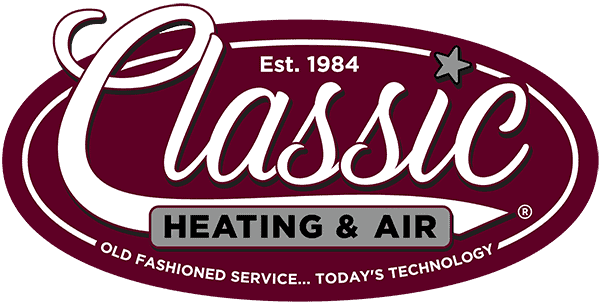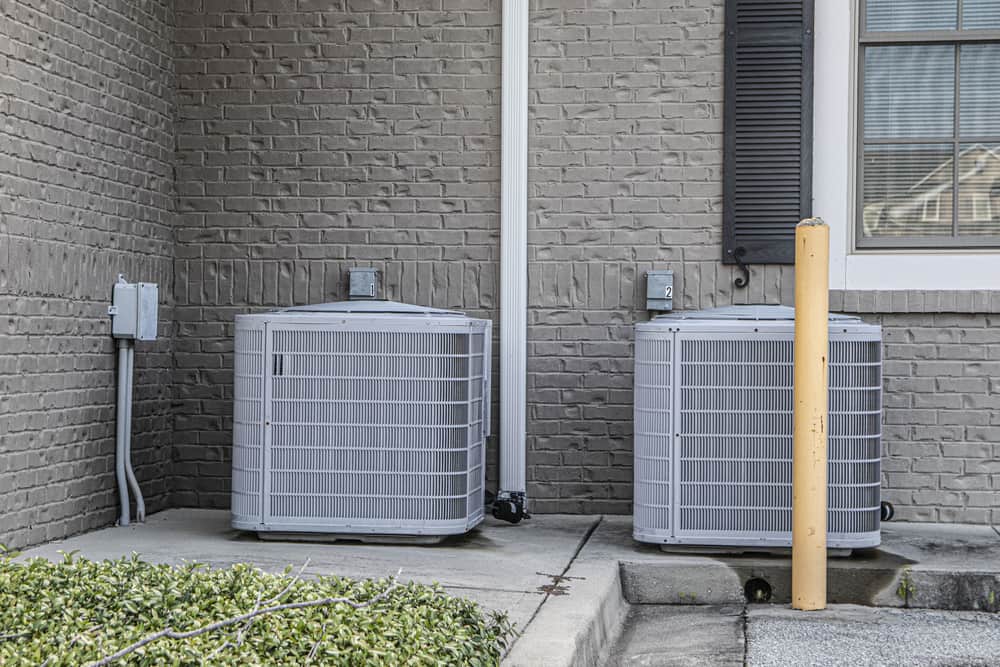The 2023 HVAC efficiency standards mark a significant shift in the heating, ventilation, and air conditioning industry, focusing on increased energy efficiency and environmental friendliness. These new regulations include heightened Seasonal Energy Efficiency Ratio (SEER) requirements, and raising the minimum efficiency standards for air conditioners and heat pumps. Additionally, there’s a notable change in the refrigerant used, transitioning from R-410 to A2L types, which are more eco-friendly. These changes aim to reduce energy consumption and lower greenhouse gas emissions, benefiting both homeowners and the environment. Implementing these standards reflects a growing emphasis on sustainability in HVAC technologies.

Introduction: What Are HVAC Energy Efficiency Standards?
With the changes to regulations in 2023, the heating, ventilation, and air conditioning (HVAC) industry will transform. The established standards for HVAC systems are far from arbitrary; they ensure energy operations reduce environmental impact and provide substantial cost savings for consumers. Homeowners, manufacturers, and installers need to have an understanding of these standards and the different metrics used to measure HVAC efficiency.
To understand the 2023 HVAC efficiency standards fully, it is necessary to grasp the metrics that evaluate and compare HVAC systems.
The efficiency of air conditioners and heat pumps is determined using energy efficiency ratios (SEER). SEER calculates the cooling output divided by the energy input during a typical cooling season. A higher SEER rating indicates energy efficiency in the system.
Another metric used to assess cooling device efficiency is EER. It measures how cooling devices convert energy input into cooling output by dividing output cooling energy (in BTU) by input electrical energy (in watt-hours). EER often forms the basis for state cooling efficiency evaluation.
Heat pump efficiency is measured using Heating Seasonal Performance Factor (HSPF). HSPF calculates heating output (in BTUs) divided by the electricity consumed (in watt-hours). The system becomes more efficient, as the HSPF rating increases.
When it comes to efficiency, the AFUE (Annualized Fuel Utilization Efficiency) represents the percentage of fuel that gets converted into energy in heating systems like furnaces or boilers. Higher AFUE percentages indicate heat production per unit of fuel consumed.
2023 marks an era for HVAC efficiency standards. It will bring about a revolution in the industry by demanding levels of efficiency. The minimum ratings for SEER, EER, HSPF, and AFUE in HVAC systems will also be raised. These standards aim to encourage the production of units that are both high-performing and environmentally friendly.
An important aspect of the standards is the introduction of a new refrigerant in 2023 with reduced global warming potential. If you’re wondering, ‘What is the new refrigerant for 2023?’ – it represents a crucial shift towards eco-friendly practices within the HVAC industry.
Why Are the Standards Being Updated?
As we progress through the year 2023, the HVAC industry is transforming, with the implementation of the updated HVAC efficiency standards. The main objective behind these updates revolves around reducing energy consumption and minimizing greenhouse gas emissions. This plays a pivotal role in addressing the challenges of climate change and environmental degradation.
Addressing Climate Change and Environmental Impact
The update of HVAC efficiency standards in 2023 is a response to growing concerns about climate change and its profound impact on our planet. HVAC systems are widely recognized as contributors to energy consumption in commercial settings. By improving the efficiency of these systems, the new standards aim to decrease the amount of energy required for heating, cooling, and ventilation. This reduction in energy usage will directly result in reduced greenhouse gas emissions, thereby alleviating the impact caused by HVAC systems.
Incorporating New Refrigerant 2023 for Reduced Global Warming
One element of these updated standards is the introduction of a refrigerant specifically designed for 2023. This refrigerant has been developed with a reduced global warming potential compared to its predecessors. Embracing this refrigerant signifies a technological advancement and marks a pivotal step towards adopting eco-friendly practices within the HVAC industry.
By adopting this refrigerant, the industry aligns itself with initiatives to phase out substances that harm the ozone layer and contribute to global warming.
Saving on Energy Costs
One of the advantages for consumers brought by the 2023 HVAC efficiency standards is the potential for savings on energy bills. As HVAC systems become more efficient, they require less power to provide comfort. This translates into reduced energy consumption and lower energy bills. Given the escalating costs of energy and the increasing financial pressure on households and businesses, this economic benefit is particularly noteworthy.
Enhancing Air Quality and Promoting Health
Another aspect addressed by these updated standards is the enhancement of air quality. Efficient HVAC systems play a role in improving air quality by maintaining optimal humidity levels and reducing pollutants. This becomes especially significant in areas where air quality remains a concern. Enhanced air quality impacts public health by reducing risks related to respiratory issues and allergies caused by poor air conditions. Furthermore, the new refrigerant 2023 ensures that consumers not only experience reduced energy bills but actively contribute to a greener, more sustainable future.
What Are the New HVAC Regulations for 2023?
The year 2023 holds significance in the HVAC industry as it brings about regulations that redefine the standards for heating, ventilation, and air conditioning systems. These regulations, known as the 2023 HVAC efficiency standards, are a response to the growing demand for energy efficiency and environmental protection. Let’s analyze these updated regulations and understand what they mean in detail of these updated regulations and understand their implications.
The 2023 HVAC efficiency standards comprise a set of regulations implemented by governing bodies to ensure that all manufactured HVAC units meet efficiency criteria. These standards go beyond updates; they represent a significant stride toward achieving energy efficiency and environmental sustainability in HVAC systems. The ultimate objective is to reduce the carbon footprint of these systems and enhance energy usage in commercial buildings.
Key Aspects of the New HVAC Regulations
SEER Ratings, one of the changes introduced through the 2023 standards, is an increase in seasonal energy efficiency ratio (SEER) ratings for air conditioners and heat pumps. This change implies that all produced units must be more efficient, resulting in reduced energy consumption and lower utility bills for consumers.
The introduction of a New Refrigerant is a crucial aspect of the 2023 standards. This new refrigerant 2023 aims to replace ones that are less environmentally friendly. It is expected that the new AC refrigerant for 2023 will have a reduced global warming potential aligning with efforts to combat climate change.
In addition to SEER (Seasonal Energy Efficiency Ratio), updates are being made to the Energy Efficiency Ratio (EER) and Heating Seasonal Performance Factor (HSPF) requirements. These enhanced requirements ensure that both cooling and heating aspects of HVAC systems are taken into account, making them efficient throughout the year.
Stricter standards for Annualized Fuel Utilization Efficiency (AFUE) are also being implemented for heating systems such as furnaces and boilers. This change will ensure that these systems utilize fuel in a manner that reduces waste and emissions.
The new HVAC regulations of 2023 now make it mandatory for all new installations to use the AC refrigerant. This step is crucial in phasing out refrigerants that contribute to ozone depletion and have a global warming potential.

What Do the HVAC Standards Mean for Consumers?
With the implementation of the 2023 HVAC efficiency standards, consumers find themselves at the forefront of a transformation in the heating, ventilation, and air conditioning industry. These standards go beyond measures; they serve as a practical guide to assist consumers in selecting HVAC systems that are both reliable and efficient for their homes or businesses. The 2023 HVAC changes will impact consumers in several ways. Here we will find out how they will benefit.
Selecting Efficient HVAC Systems
One of the objectives of the HVAC efficiency standards is to help consumers decide when selecting highly efficient HVAC systems. The raised minimum SEER (Seasonal Energy Efficiency Ratio), EER (Energy Efficiency Ratio), and HSPF (Heating Seasonal Performance Factor) ratings ensure that all new systems available on the market will be more energy efficient. This enhanced efficiency translates into lower energy bills and a diminished carbon footprint—making it a viable and environmentally responsible investment for consumers.
Understanding the Introduction of a New Refrigerant in 2023
One aspect of the changes in 2023 is the adoption of a new refrigerant. Consumers need to understand the ramifications, as it influences both the environment and the future maintenance of their HVAC systems. The new refrigerant 2023 aims to be more environmentally friendly, reducing the environmental impact associated with HVAC systems. Consumers need to be aware of this change to make decisions regarding installations or upgrades.
Term Savings and Environmental Advantages
Although purchasing a system that complies with the 2023 HVAC efficiency standards may come with a cost, there are significant long-term savings to consider. These systems are designed to consume minimal energy while maintaining comfort levels resulting in lower energy bills over time. Moreover, by adopting systems that utilize refrigerants, consumers actively contribute towards reducing greenhouse gas emissions and combating climate change.
Enhanced Reliability and Performance
The changes implemented in 2023 also promise reliability and performance for consumers’ HVAC systems. The rigorous standards ensure that manufacturers produce systems that not only meet but exceed performance benchmarks. This translates into temperature control, enhanced air quality, and a higher level of comfort, for both residential and commercial spaces. Manufacturers’ adherence to the new refrigerant 2023 is a testament to their commitment to producing HVAC systems that not only meet but exceed performance benchmarks.
Helping Consumers Make Informed Decisions
A crucial aspect of the 2023 HVAC efficiency regulations revolves around equipping consumers with the information to make informed decisions about their HVAC systems. By comprehending these standards and recognizing the importance of the 2023 refrigerant, consumers can confidently choose systems that are both energy-efficient and environmentally friendly while also being mindful of their budget.
How Can Consumers Find More Information About HVAC Efficiency Standards
In the ever-changing world of HVAC technology and regulations, individuals seeking information about the 2023 HVAC efficiency standards and the introduction of refrigerant in 2023 have several reliable sources available to them. Understanding these standards is vital when deciding on HVAC systems, be it for installation, maintenance, or repairs. It’s also important to select the HVAC service provider to ensure compliance with these standards. This section guides where to find information and highlights why Classic Heating and Air is a choice for residential HVAC repair and maintenance services that align with the new standards.
Finding Trustworthy Information on 2023 HVAC Efficiency Standards
- Government and Regulatory Websites: Visit government websites and regulatory bodies responsible for energy and environmental standards. These sources offer up-to-date information on the 2023 HVAC efficiency standards, including details about refrigerant changes in 2023.
- HVAC Industry Associations: Explore websites and publications from HVAC industry associations. These organizations frequently publish articles, guidelines, and technical resources relating to the standards and industry developments.
- Educational Institutions: Academic institutions and research centers frequently produce content regarding energy efficiency and environmental regulations. Look for research papers, articles, or publications that explain the significance of the changes in 2023.
Selecting the Right HVAC Service Provider
When choosing an HVAC service provider, you should ensure that your HVAC systems meet the standards set for 2023, which is the most important factor. Here are a few things to consider:
- Certifications and Licensing: You should make sure that the provider holds all the certifications and licenses required for HVAC installations, repairs, and maintenance. This demonstrates their professionalism and commitment to delivering high-quality work.
- Customer Reviews and References: Take some time to read customer reviews and ask for references from the clients of the HVAC service provider. Positive reviews and satisfied customers serve as indicators of their reliability and quality of service.
- Energy Efficient Solutions: Look for a service provider who prioritizes energy solutions and provides guidance on maximizing energy savings while complying with the standards.
- Transparent Pricing: Transparent pricing is essential. Opt for a service provider that prioritizes transparent pricing, providing a clear breakdown of costs without hidden fees or surprises. This commitment to clear communication ensures you understand the expenses involved.
Why Choose Classic Heating and Air?
Classic Heating and Air stands out as a choice for residential HVAC repair and maintenance services due to multiple factors;
Classic Heating and Air has an understanding of HVAC efficiency standards and has adjusted its services accordingly to ensure compliance. Our technicians are well-trained to handle the refrigerant 2023, making them a reliable choice for installations and maintenance.
Classic Heating and Air, as a forward-thinking service provider, embraces the industry’s shift with expertise in handling the new refrigerant 2023, ensuring your HVAC systems are future-proof and environmentally responsible.
We take pride in offering high-quality service and maintenance, prioritizing the effective operation of HVAC systems in line with the standards. Our goal is to maximize longevity and performance.
Classic Heating and Air is dedicated to promoting energy efficiency, helping customers save on their energy bills while enjoying all the advantages of an HVAC system. We can guide you on optimizing energy usage tailored to your needs.
Customer satisfaction is at the core of Classic Heating and Air’s approach. We always strive to provide solutions and advice that cater to each customer’s preferences ensuring a personalized experience throughout the entire service process.
When it comes to pricing, Classic Heating and Air believes in transparency. We offer cost breakdowns so that customers know what they’re paying for without surprises. Additionally, our competitive pricing ensures affordability without compromising on quality.
Here at Classic Heating & Air, we are dedicated to meeting your comfort needs and exceeding your expectations in service. We take pride in offering the residents of McKinney, Plano, and the entire Dallas metroplex with top-notch equipment warranty, and outstanding customer service. Reach out to us today. Allow us to demonstrate The Classic Difference!


